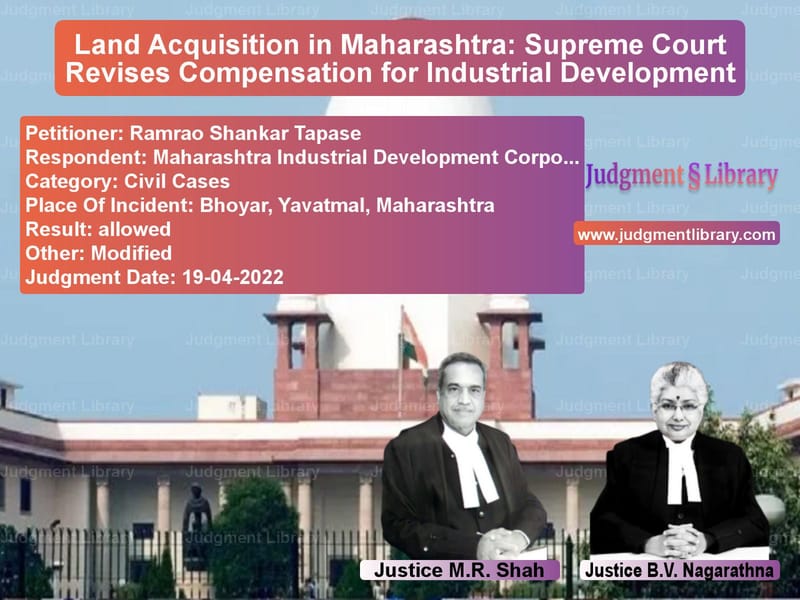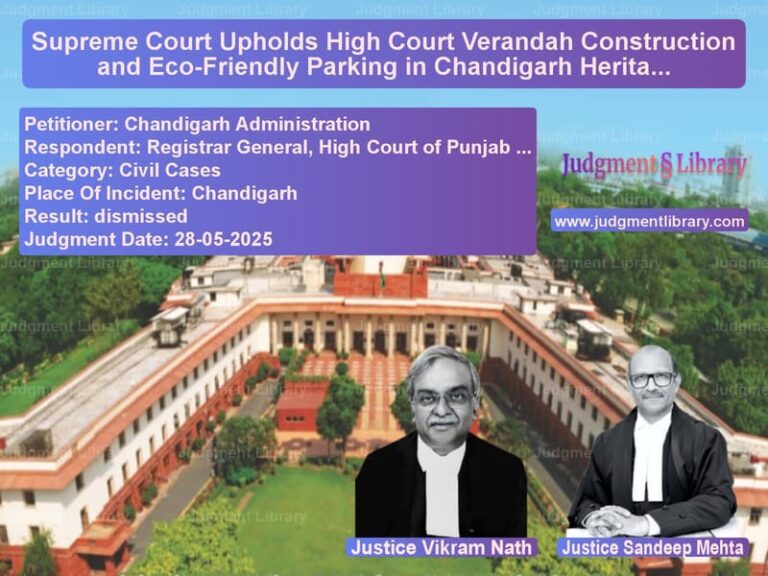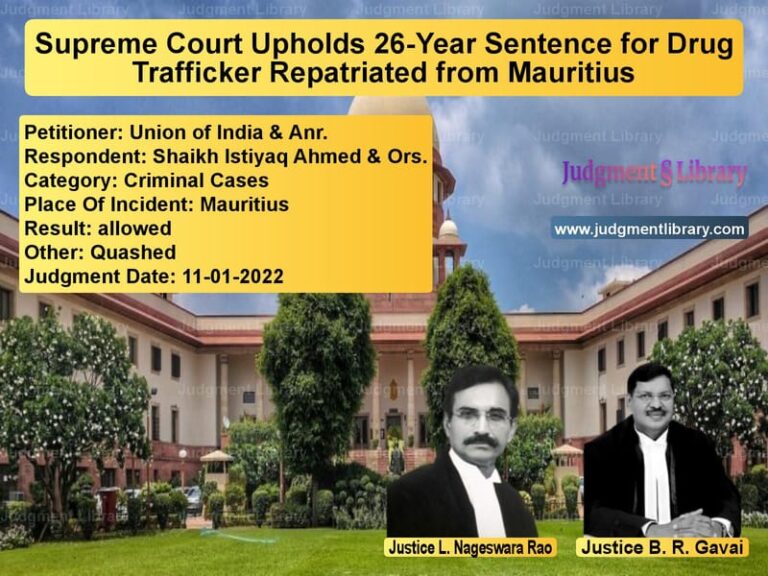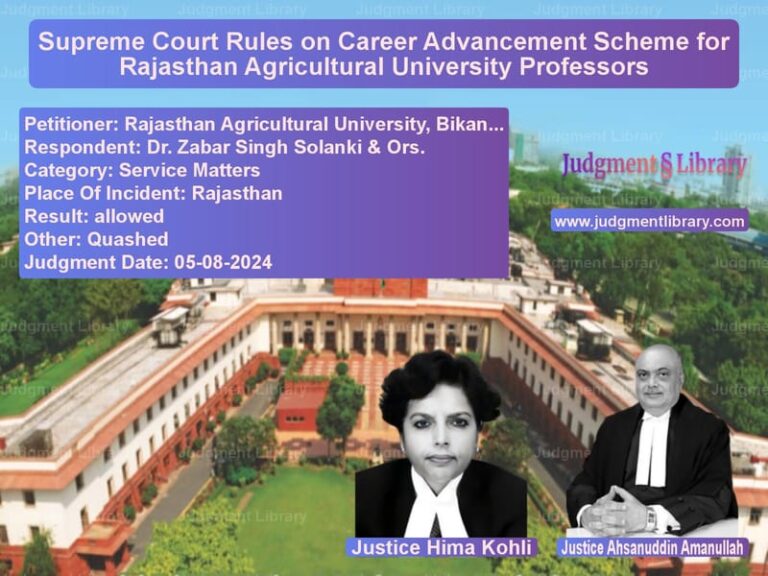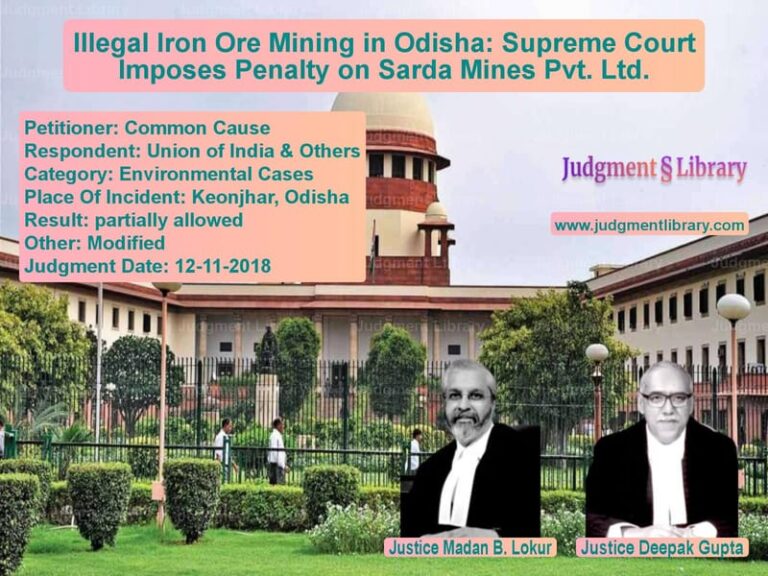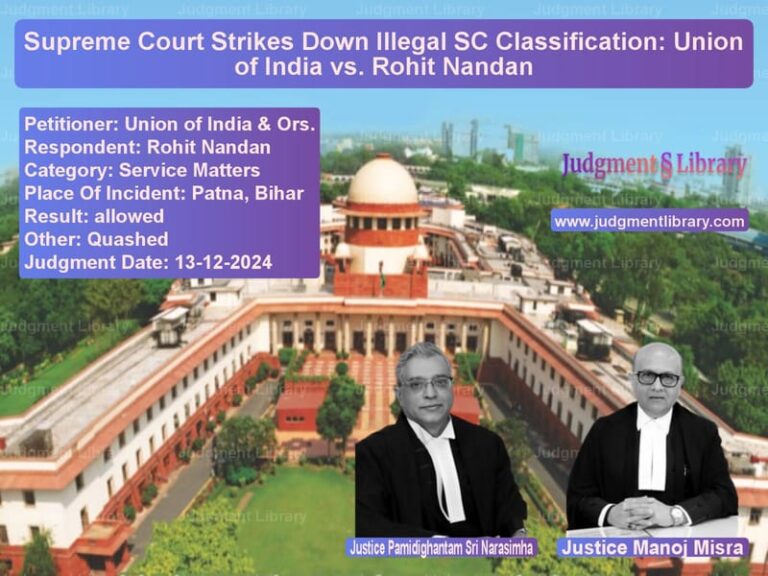Land Acquisition in Maharashtra: Supreme Court Revises Compensation for Industrial Development
The case of Ramrao Shankar Tapase vs. Maharashtra Industrial Development Corporation & Others is a landmark judgment concerning land acquisition compensation in Maharashtra. The Supreme Court examined whether landowners whose agricultural land was acquired for industrial expansion were entitled to higher compensation and the methodology for assessing fair market value.
Background of the Case
The dispute originated when the Maharashtra Industrial Development Corporation (MIDC) acquired land in Bhoyar, Yavatmal for industrial expansion. The acquisition was initiated under Section 32(2) of the Maharashtra Industrial Development Act, 1961. The affected landowners challenged the compensation awarded by the Special Land Acquisition Officer, arguing that it did not reflect the land’s industrial potential.
Legal Proceedings and Compensation Dispute
The compensation process involved multiple stages:
- Initial Award: The Land Acquisition Officer awarded compensation ranging from Rs. 1,500 to Rs. 62,529 per hectare.
- Reference Court: The affected landowners filed reference applications, leading to an enhancement in compensation, with some claimants receiving up to Rs. 4,00,000 per hectare.
- High Court Appeal: Both MIDC and the claimants appealed. The High Court reduced compensation, capping it at Rs. 2,00,000 per hectare for most claimants.
- Supreme Court Challenge: The landowners, dissatisfied with the High Court ruling, appealed to the Supreme Court.
Arguments of the Petitioners (Landowners)
- The land was acquired for industrial development, and its potential commercial use was not considered while determining compensation.
- Landowners from nearby Lohara village received Rs. 3,75,000 per hectare, but those from Bhoyar were awarded significantly less.
- The High Court incorrectly relied on a 1992 sale deed (Ex. 41) to calculate compensation, disregarding rising land prices.
- The 10% annual increase applied by the High Court should have been at least 12% per year to reflect actual market trends.
- The compensation should have included additional consideration for land non-agricultural potential.
Arguments of the Respondents (MIDC & Maharashtra Government)
- The compensation was determined based on comparable sale transactions within the village.
- The High Court had already increased the compensation substantially, and any further enhancement was unwarranted.
- The development potential was considered, and a 15% premium was added for non-agricultural land conversion.
- The land was agricultural at the time of acquisition, and future industrial use should not influence compensation calculations.
Supreme Court’s Ruling
The Supreme Court, led by Justices M.R. Shah and B.V. Nagarathna, revised the High Court’s compensation ruling and granted additional relief to landowners.
Key Observations:
- The High Court’s reliance on a 1992 sale deed was justified but required a higher adjustment for price escalation.
- The annual price increase should be 12% instead of 10%, given the industrialization in the region.
- The potential commercial value of land should be recognized, and additional compensation should be awarded accordingly.
- Development expenses should not have been deducted, as the land was intended for industrial use.
Final Judgment
The Supreme Court revised the compensation structure:
- Increased the base compensation from Rs. 2,00,000 per hectare to Rs. 2,25,000 per hectare for high-value land.
- For lower-value land, revised compensation from Rs. 1,50,000 per hectare to Rs. 1,75,000 per hectare.
- For uncultivable land, raised compensation from Rs. 90,000 per hectare to Rs. 1,00,000 per hectare.
- Directed the government to pay interest on the enhanced amount, except in cases with delayed filing.
Impact of the Judgment
This ruling sets a precedent for land acquisition compensation:
- Ensures fair compensation for landowners based on industrial potential.
- Recognizes price escalation in rapidly developing areas.
- Restricts arbitrary deductions for development charges.
- Ensures uniform treatment of landowners across contiguous villages.
Conclusion
The Supreme Court’s decision in Ramrao Shankar Tapase vs. Maharashtra Industrial Development Corporation reinforces the principle of equitable compensation in land acquisitions. By ensuring that industrial expansion does not come at the expense of landowners’ rights, this ruling strengthens protections for affected individuals and provides a robust framework for future cases.
Read also: https://judgmentlibrary.com/supreme-court-remands-property-dispute-case-for-fresh-adjudication/
Petitioner Name: Ramrao Shankar Tapase.Respondent Name: Maharashtra Industrial Development Corporation & Others.Judgment By: Justice M.R. Shah, Justice B.V. Nagarathna.Place Of Incident: Bhoyar, Yavatmal, Maharashtra.Judgment Date: 19-04-2022.
Don’t miss out on the full details! Download the complete judgment in PDF format below and gain valuable insights instantly!
Download Judgment: ramrao-shankar-tapas-vs-maharashtra-industri-supreme-court-of-india-judgment-dated-19-04-2022.pdf
Directly Download Judgment: Directly download this Judgment
See all petitions in Property Disputes
See all petitions in Damages and Compensation
See all petitions in Landlord-Tenant Disputes
See all petitions in Judgment by Mukeshkumar Rasikbhai Shah
See all petitions in Judgment by B.V. Nagarathna
See all petitions in allowed
See all petitions in Modified
See all petitions in supreme court of India judgments April 2022
See all petitions in 2022 judgments
See all posts in Civil Cases Category
See all allowed petitions in Civil Cases Category
See all Dismissed petitions in Civil Cases Category
See all partially allowed petitions in Civil Cases Category

